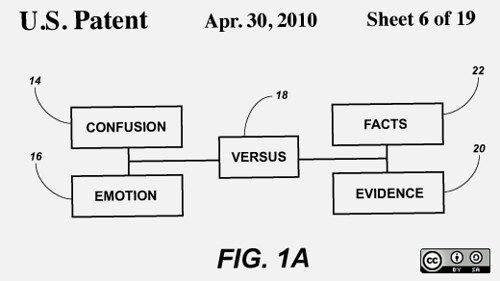When an inventor files a patent application with the US Patent & Trademark Office (“USPTO”), one of the first steps in the patent process is the assignment of a patent examiner to the application. One can think of a patent examiner as a “case worker” for the patent application. The patent examiner is an attorney with experience in patent law. The USPTO provides patent examiners with training on how to process applications and with respect to the legal requirements for issuing a patent. More specifically, a patent examiner does the following:
- Reviews the application to ensure that it complete
- Reads the invention set forth in the application
- Reviews and determines the scope of the claims
- Searches “prior art” related to the claims to determine whether the invention is novel and/or non-obvious
- Ensures other legal requirements are met
- Ultimately, makes a determination on patentability of the claimed invention
The patent examiner also engages in other administrative tasks like initiating correspondence with the applicant — called “Office Actions” — which might ask questions, seek additional information/data or identify “problems” with the patentability of the claimed invention. In addition, the patent examiner will respond to an applicant’s correspondence, will issue various official Notices like a Notice of Allowance or Abandonment and will ensure all other procedural steps are taken.
If you are a small business or micro-entity trying to obtain a patent, it is important to understand that you will receive correspondence from your patent examiner and it is important to respond in a timely fashion with pertinent answers.
In addition — and this is important — the patent examiner will take phone calls and engage in one or more official “patent examiner interviews.” These interviews can take place in person, over the phone or via video conference.
If you are a small business or micro-entity trying to obtain a patent, it is important to avail yourself of these options to talk in person to your patent examiner. Talking is often more effective than writing. Officially, a patent examiner cannot say whether or not the invention is patentable. That will be an official determination. But, a patent examiner can discuss a lot of important information including the following:
- What prior art did the examiner examine?
- Did the examiner identify any relevant existing inventions or public disclosures?
- What “problems” might result from prior art, existing inventions or public disclosure?
- Would it be helpful to adjust any of the claims made in the application?
- Or, would it be helpful for the applicant to make other adjustments to the application?
- Is something missing from the application or should more detail be provided?
- And more
Often, this information is contained in the written correspondence. But it is useful to discuss these questions in person.
An examiner interview is also an opportunity for the applicant to provide information to the examiner. For example, with an in-person or video interview, the applicant could display a prototype of the invention or demonstrate the process or method that is sought to be patented. This might assist the examiner in understanding the invention. A demonstration also might prompt a “back-and-forth” discussion that could help the applicant glean important information about “problems” with the application and potential resolution methods. Even if a prototype is not available, having the opportunity to verbally explain the invention can help.
Contact Revision Legal
For more information or if you have an invention that you want to patent, contact the patent lawyers at Revision Legal at 231-714-0100.




